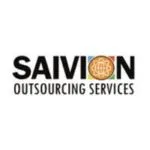
Top Real Estate Software Development Companies
Welcome to our comprehensive guide to the top Real Estate Software Development Companies! In today’s dynamic real estate market, technology plays a crucial role in optimizing operations, enhancing efficiency, and delivering exceptional customer experiences. Our curated list features the leading companies specializing in developing innovative software solutions tailored specifically for the real estate industry. From property management systems and CRM platforms to listing management software and virtual tour platforms, these companies offer a diverse range of products and services to meet the unique needs of real estate professionals and organizations. With detailed reviews and insights, we empower you to make informed decisions and choose the best partner for your real estate software needs.
List of the Best Real Estate Software Development Companies

-
Employees: 11 to 50
-
Min. Project amount: $10,000
-
Country: NY, USA

Cyber Nest
-
Employees: 11 to 50
-
Min. Project amount: $25-$49/hr
-
Country: NY, United States
-
Employees: 100 to 200
-
Min. Project amount: $10000
-
Country: Karnataka, India
-
Employees: 11 to 50
-
Min. Project amount: $1,000+
-
Country: Singapore

Telepathy Infotech
-
Employees: 51 to 100
-
Min. Project amount: $5,000+
-
Country: Casper, WY

Onex Software
-
Employees: 11 to 50
-
Min. Project amount: $10,000+
-
Country: İzmir, Türkiye

Saivion India
-
Employees: 11 to 50
-
Min. Project amount: $1,000+
-
Country: New Delhi, INDIA

SAT Microsystems
-
Employees: 251 to 500
-
Min. Project amount: $250,000+
-
Country: Jeddah, Saudi Arabia

Elite M Commerce
-
Employees: 101-250
-
Min. Project amount: Undisclosed
-
Country: NJ, United States

Ecom Buzz
-
Employees: 0 to 10
-
Min. Project amount: $1,000+
-
Country: Kolkata, India
** Buyer's Guide **
- 1. What types of real estate software solutions do these companies offer?
- 2. How user-friendly are the real estate software solutions for real estate agents, brokers, and clients?
- 3. Can real estate software solutions integrate with existing systems and third-party applications used by my real estate business or brokerage?
- 4. Can real estate software solutions be customized to meet the specific needs of my real estate business or brokerage?
1.What types of real estate software solutions do these companies offer?
Top real estate software development companies offer a variety of solutions tailored to the real estate industry, including property management systems, customer relationship management (CRM) platforms, listing management software, virtual tour platforms, and transaction management solutions.
Real estate software development companies cater to the diverse needs of the industry with a range of solutions designed to streamline workflows, boost efficiency, and enhance the overall experience for real estate professionals and clients alike. Here’s a breakdown of some of the most common real estate software solutions:
Building a Tech Stack for Success: Exploring Real Estate Software Solutions
In today’s digital world, real estate professionals leverage a variety of software solutions to manage properties, connect with clients, and navigate the complexities of transactions. Here’s a closer look at some key options:
Property Management Systems: These solutions empower property managers to streamline daily tasks like rent collection, maintenance requests, tenant communication, and lease management. Features often include online portals for tenants, vacancy management tools, and financial reporting functionalities.
Customer Relationship Management (CRM) Platforms: CRM software helps real estate agents and brokers manage client relationships, track leads, nurture prospects, and automate marketing campaigns. Features can include contact management, lead scoring, email automation, and marketing analytics.
Listing Management Software: Simplify property listings with dedicated software. These solutions allow agents to upload and manage listings across multiple platforms (MLS, websites), schedule showings, track leads generated from listings, and collaborate with other agents.
Virtual Tour Platforms: Create immersive virtual tours of properties to showcase them to potential buyers or renters remotely. Virtual tour software allows for 360-degree views, interactive features, and integrations with property listing platforms.
Transaction Management Software: Streamline the real estate transaction process with dedicated software. These solutions can manage document sharing, electronic signatures, task management, communication with all parties involved (buyers, sellers, lenders), and ensure all steps are completed efficiently.
Real Estate Marketing Software: Reach a wider audience and generate more leads with real estate marketing software. These solutions offer tools for social media marketing, email marketing automation, content creation, and website management, all geared towards the real estate industry.
Real Estate Analytics Tools: Data-driven insights are crucial in real estate. Analytics tools can provide market trends, property valuation estimates, competitor analysis, and lead generation insights to empower informed decision-making.
Mobile Apps: Many software solutions offer mobile apps for agents and property managers. These apps provide on-the-go access to manage properties, communicate with clients, and stay updated on the latest industry trends.
Additional Niche Solutions:
- Commercial Real Estate Software: Catering to the specific needs of commercial property management and leasing.
- Real Estate Investment Analysis Software: For investors to analyze potential investment properties and make informed decisions.
- Real Estate Appraisal Software: Streamline the appraisal process with dedicated software tools.
Choosing the Right Solutions:
The specific software solutions you’ll need depend on your area of focus within the real estate industry (property management, brokerage, investment). Consider factors like the size of your team, your budget, and the specific functionalities you require. By partnering with a skilled software development company, you can identify the right solutions to optimize your workflows, enhance communication, and achieve your real estate goals.
2.How user-friendly are the real estate software solutions for real estate agents, brokers, and clients?
The best real estate software solutions are designed to be intuitive and user-friendly, with interfaces that are easy to navigate for real estate professionals and clients alike. Look for companies that prioritize usability and provide comprehensive training and support resources.
User-friendliness is key for real estate software solutions, catering to both real estate professionals with varying technical backgrounds and clients who might not be familiar with complex software. Here’s how leading developers ensure their solutions are user-friendly for everyone involved:
Bridging the Tech Gap: Making Real Estate Software Easy for All Users
Real estate software should empower users, not create a technical hurdle. Leading developers focus on user-friendly design for both real estate professionals and clients:
For Real Estate Professionals:
Clean and Intuitive Interfaces: Menus, buttons, and functionalities should be logically organized and easy to understand. Real estate professionals should be able to quickly access the features they need to manage properties, track leads, and complete tasks efficiently.
Role-Based Dashboards: Dashboards tailored to specific roles (agent, broker, property manager) can prioritize the most relevant information and functionalities for each user.
Minimal Training Requirements: Ideally, the software should be intuitive enough to learn quickly with minimal training. Look for solutions that offer clear in-app tutorials and readily available user guides to guide users through key functionalities.
Context-Sensitive Help: Real-time guidance is crucial. Software can provide context-sensitive help features that offer relevant tips and tutorials based on the specific task a user is trying to accomplish.
Multiple Support Options: Comprehensive training and support resources are essential. Look for companies that offer multiple support channels (phone, email, online chat) to address user queries and troubleshoot any issues promptly.
For Clients:
Simple and Uncluttered Interfaces: Client-facing interfaces (e.g., property search portals, tenant portals) should be simple, uncluttered, and easy to navigate. Search functionalities, property details, and contact information should be readily accessible.
Mobile-Friendly Design: Many clients search for properties or manage their rentals on the go. Ensure the software offers mobile-friendly versions or dedicated mobile apps with a user-friendly interface and core functionalities readily available.
Clear Instructions and Visual Cues: Clear instructions and intuitive visual cues can guide clients through tasks like scheduling appointments, submitting maintenance requests, or making online payments.
Benefits of User-Friendly Real Estate Software:
Increased User Adoption: Easy-to-use software ensures higher adoption rates among real estate professionals and clients, maximizing the software’s value.
Improved Efficiency: Intuitive interfaces and streamlined workflows empower users to complete tasks quickly and efficiently, saving time and reducing errors.
Enhanced Client Engagement: User-friendly client portals and mobile apps empower clients to actively participate in the real estate journey, improving communication with agents and property managers.
Reduced Support Costs: Intuitive design and readily available resources can minimize the need for ongoing technical support, reducing costs for real estate professionals.
Finding the Perfect Fit:
Request Demos and Free Trials: Many companies offer free trials or demo sessions to allow real estate professionals to experience the software firsthand and assess its user-friendliness. For client-facing functionalities, inquire about demos showcasing the client portal or mobile app interface.
User Reviews and Ratings: Read online reviews and ratings to gain insights from existing users about the software’s ease of use, both for real estate professionals and clients.
By prioritizing user-friendly design, comprehensive training, and ongoing support, leading real estate software development companies ensure their solutions empower both real estate professionals and clients to leverage the software’s functionalities effectively, streamline processes, and enhance the overall experience within the real estate industry.
3.Can real estate software solutions integrate with existing systems and third-party applications used by my real estate business or brokerage?
Yes, top real estate software development companies offer solutions that are designed to integrate seamlessly with existing systems and third-party applications, such as MLS platforms, accounting software, and marketing tools. Integration capabilities ensure smooth data exchange and interoperability.
Integration is a cornerstone of modern real estate software solutions. Here’s how these solutions connect seamlessly with the technological ecosystem of your real estate business or brokerage:
Building Your Real Estate Tech Stack: Seamless Integration for Streamlined Operations
No real estate business or brokerage operates in isolation. Leading real estate software development companies understand this and design their solutions to integrate harmoniously with your existing systems and third-party applications:
Multiple Listing Service (MLS) Platforms: Ensure your new software integrates seamlessly with your local MLS. This eliminates the need for duplicate data entry when listing properties and ensures your listings reach a wider audience of potential buyers.
Accounting Software: Streamline your financial operations with integrations between your real estate software and your accounting software. This allows for automated data exchange of rental income, expenses, and financial reports, improving accuracy and saving time.
Marketing Tools: Many real estate professionals leverage email marketing platforms, social media management tools, or marketing automation software. Integrations ensure smooth data exchange for targeted marketing campaigns to potential clients.
Background Check Services: Integrate with background check services to streamline the tenant screening process. This allows you to quickly and efficiently verify potential tenants’ information.
Electronic Signature Tools: Facilitate a smoother closing process with integrations allowing electronic signatures for contracts and other essential documents.
Project Management Tools: For real estate developers or property management companies dealing with construction projects, integrate with project management tools. This streamlines communication with contractors, tracks project progress, and ensures tasks are completed on schedule.
Tenant Screening Services: Integrate with tenant screening services to expedite the application process and ensure you select qualified tenants.
Benefits of Seamless Integration:
Automated Workflows: Automate data exchange between your various systems, eliminating manual data entry and reducing processing times.
Improved Efficiency: Integrated solutions foster smoother information flow, optimizing operational efficiency and boosting productivity within your brokerage.
Enhanced Data Accuracy: Seamless integrations ensure data accuracy and consistency across all your platforms, minimizing errors and discrepancies.
Reduced Costs: Integrations can eliminate the need for manual data entry, saving time and reducing administrative costs.
Empower Data-Driven Decisions: Consolidated data from various systems through integrations allows for better decision-making regarding marketing strategies, property management, and investment opportunities.
Finding the Right Integration Fit:
Evaluate API Capabilities: When evaluating real estate software development companies, inquire about their API integration capabilities. Ensure they offer open APIs that can connect with the specific systems and applications you utilize in your brokerage.
Discuss Integration Needs: Clearly communicate your integration requirements to potential software vendors. This allows them to assess your needs and propose solutions that ensure seamless interoperability with your existing infrastructure.
By prioritizing integration capabilities, you can ensure that your new real estate software solution integrates seamlessly with your existing systems and third-party applications. This fosters a unified technological ecosystem that streamlines operations, enhances communication, and empowers your real estate business or brokerage to achieve its goals.
4.Can real estate software solutions be customized to meet the specific needs of my real estate business or brokerage?
Yes, reputable real estate software development companies understand that each real estate business or brokerage has unique requirements. They typically offer customizable solutions that can be tailored to align with specific workflows, property types, and business objectives.
Reputable real estate software development companies recognize the diverse landscape of the real estate industry and the unique needs of different brokerages and businesses. They provide solutions that can be meticulously tailored to match the specific workflows, property types, and overall business objectives of your real estate business or brokerage. Here’s how customization comes into play:
Tailored Solutions: Customizing Real Estate Software for Your Business
A one-size-fits-all approach rarely works well in real estate. Leading real estate software development companies understand this and offer customizable solutions to perfectly align with your unique environment:
Property Type Specialization: Some solutions cater to specific property types (residential, commercial, property management). Choose a solution that aligns with your core business area and offers functionalities tailored to your needs.
Workflow Integration: The software should seamlessly integrate with your existing workflows. Look for companies that allow customization of features, reports, and dashboards to match how your brokerage typically operates (e.g., lead nurturing processes, property management tasks).
Scalability and User Access Controls: Your software needs should adapt as your business grows. Opt for customizable solutions that can be scaled up or down based on your number of agents, properties managed, and overall business volume. Granular user access controls ensure that different team members (agents, brokers, property managers) have access to the functionalities relevant to their roles.
Compliance Considerations: The software should be customizable to adhere to relevant real estate regulations and data privacy standards. Look for companies that offer solutions that can be configured to meet your specific compliance requirements, such as Fair Housing Act regulations.
Integration with Existing Systems: Customization extends to integrating the software with your existing real estate technology infrastructure. This might include MLS platforms, accounting software, or marketing tools. Reputable companies will ensure seamless data exchange between your new software solution and your existing systems.
Benefits of Customization:
Optimized Workflows: A tailored solution streamlines workflows, improves efficiency, and allows your team to focus on core business activities rather than wrestling with clunky software.
Enhanced Client Service: Customization empowers you to deliver a more personalized experience for your clients, aligning with your specific approach to client communication and property marketing.
Improved Team Productivity: Role-based functionalities and intuitive interfaces ensure your team can leverage the software effectively, boosting overall productivity.
Reduced Costs: Customization helps avoid paying for unnecessary features and ensures you get the functionalities that deliver the most value for your investment.
Finding the Perfect Fit:
Discuss Customization Needs: When evaluating real estate software development companies, clearly communicate your specific needs, property types you manage, and desired functionalities. Discuss your customization requirements to ensure the company can tailor the solution to your unique business environment.
Request Feature Demonstrations: Reputable companies will showcase how their software can be customized to meet your needs. Look for demos that highlight features relevant to your property types, workflows, and team structure.
Industry Experience and Client Testimonials: Review case studies showcasing how the company has developed customized solutions for real estate businesses or brokerages similar to yours. Client testimonials can offer valuable insights into the customization process and the overall client experience.
By partnering with a company that prioritizes customization, you can ensure your real estate software solution seamlessly integrates with your existing infrastructure, optimizes your workflows, empowers your team, and ultimately enhances the way you conduct business within the real estate industry.





